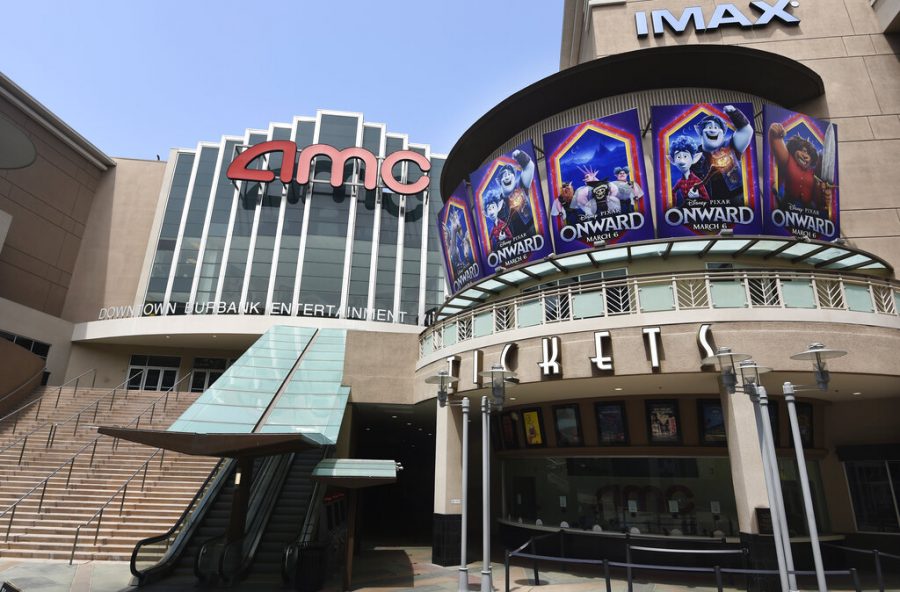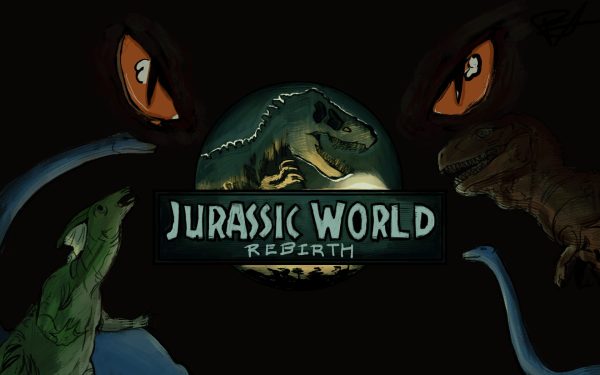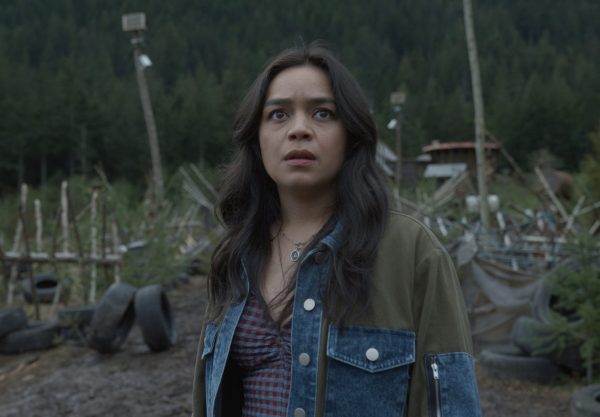Are movie theaters doomed?
Credit: Chris Pizzello/Invision/AP
FILE – The currently closed AMC Burbank 16 movie theatres complex is pictured on April 29, 2020, in Burbank, Calif. After several false starts, the film industry is hoping to bring new releases back into movie theaters in late August. But for blockbusters, it may mean rethinking opening weekend and returning to a more gradual rollout through international and U.S. territories. Gone for now are the days of massive global openings. And theater owners say if they don’t get new films soon, they may not make it to 2021. (AP Photo/Chris Pizzello, File)
Back in March, I was genuinely attempting to make bets with friends as to whether Disney’s heavily-marketed “Mulan” live-action film was to be released as planned, or pushed back due to COVID-19, as many other films fates have been attributed to the latter. In retrospect, that betting game was both fickle and insensitive, as both corporate-owned theater chains and smaller ones as well are facing an irreversible economic calamity.
According to a Los Angeles Times article by Ryan Faughder, “Wedbush Securities [wealth management] estimates that the North American box office will total $4.4 billion in 2020, down 61 percent from last year. (In 2019, box office revenue was $11.4 billion, a 4 percent dip from the prior year.)” That tragic exponential dip is indeed unprecedented, but not unique to just one sector of this expansive entertainment industry.
This damage to the industry now can be rejuvenated, right? It’s sadly an unfortunate assembly line that requires a multitude of dynamic, moving parts. The films are not being made, leaving studios with pushed-back releases and erratic schedules. Movie theater chains — independent and corporate-owned — don’t know when they can open, as distributors have been pushing theaters to open, shown by the flip-flop release plan for Christopher Nolan’s highly-anticipated film, “Tenet.”
The sci-fi blockbuster has been pushed back time and time again, acting as the precursor for other studios and their subsequent release schedules. As the $100 million-plus film budgets run up on films like “Tenet,” “Mulan” and “Avatar,” we have been seeing a higher influx of feature films being released digitally, with differing levels of both financial success and adaptability to the now quarantined-audiences.
While the question of digital releases trumping theatrical releases is more relevant than ever, theater-chain conglomerate AMC was planned to open back up in the states on July 30th (after several pushbacks), only for yet another delay to take place. On Thursday, the company released a statement describing how they are holding off from reopening because of no films being released for them to show. A coincidental circumstance? An aggressive PSA for film distributors to release the blockbusters?
AMC claims they have a plan, with masks required for patrons to enter, increased deep-cleaning, and more ventilation. But John Fithian, president of the National Association of Theatre Owners (NATO), believes that distributors are working on a dated model of blockbuster releases and 100 percent capacity, a standard that is simply not viable in the coronavirus climate.
“Distributors who want to play movies theatrically, they can’t wait until 100 percent of markets are allowed open because that’s not going to happen until there’s a vaccine widely available in the world,” Fithian stated. “This is existential for the movie theater industry. If we go a year without new movies, it’s over.”
To say that the U.S. theaters should take notes from China on their theater reopening strategies would be to forget about the dismissive ignorance that seems to plague our country worse than others. American’s have proven to ignore health warnings, as the “no mask, no service” rule is one that is being perpetually challenged (much more so than the “no shoes, no shirt, no service” one.) China reported a $500,000 first-day box office total on July 19, while the U.S. is still limited to drive-in theaters, who don’t have new films to show regardless.
There are even recent calls for government assistance to be granted to the movie theaters and chains across the country. The campaign, #SaveYourCinema, is a copy-and-paste template, similar to petitions that are seen across social media. The template hones in on movie theaters being a treasured American past-time, along with the legal lingo that might catch the eye of a U.S. senator.
Part of the template reads, “I urge you to save theaters by supporting the RESTART Act (S. 3814/H.R. 7481), which will give movie theaters access to partially forgivable seven-year loans covering six months of expenses, a lifeline for theaters that have been left behind by existing loan programs.”
Not only am I a moviegoer, but I have been lucky enough to do consistent press for film releases by Warner Brothers, A24, Paramount and more for the last couple years. I remember getting an email inviting me to interview Kumail Nanjiani (The Big Sick, Silicon Valley) who was set to hit Chicago during his nationwide press run. This would have been my second time interviewing the Oscar-nominee, something that genuinely excites me as both a journalist and film lover: seeing the trajectory of an artist’s career within the media landscape and interacting with them personally along this journey.
The press tour was promptly canceled as coronavirus manifested itself in our rudimentary lifestyles, a precursor to the decline in much of my work and social life. Something that I could have never predicted, but also something that Regal, AMC, Cinemark and more also failed to see looming in the distance.
My original big-budget betting game with the release of “Mulan” is directly correlated to the fact that, well, none of us thought that this virus could impact our lives in the way that it has, and will continue to. But it is also a sign of sheltered naivety, one in which my privileged upbringing had never had faced unprecedented hardships like the multi-faceted pandemic. As movie theaters battle it out with distributors and moviegoers start to see streaming as the primary means of media consumption, the virus continues to spread. This brings more implications, more hurdles to leap, more money slipping down the drain.
Movie theaters, as the #SaveTheCinema campaign states, are a true staple in American culture. There is no doubt that theaters want to get things going. But the cost-benefit of happiness versus health and safety is very apparent. Even if the theaters open, will you assess the risk in staying in a room for hours with strangers, just to see the new Disney film? I will. But I cannot speak for others, and movie theater chains seem to agree with me on that, at the very least.











